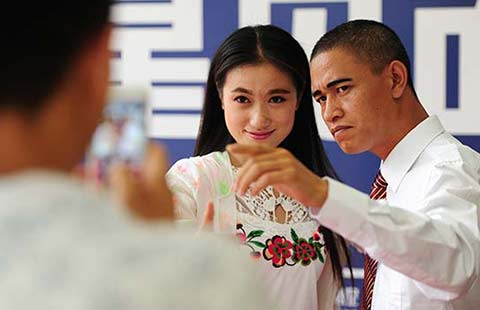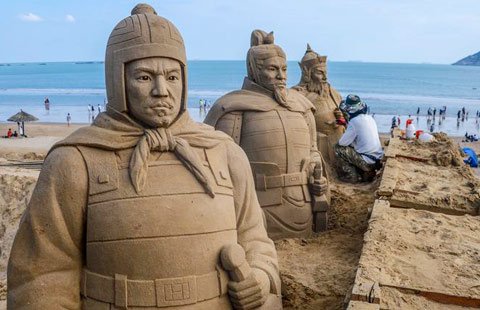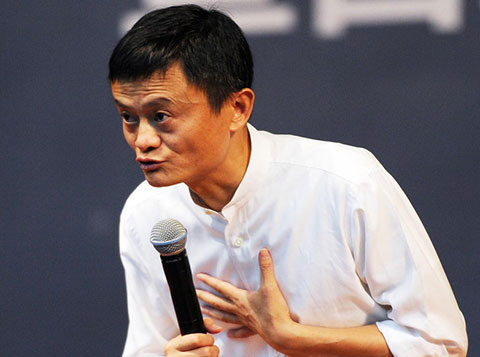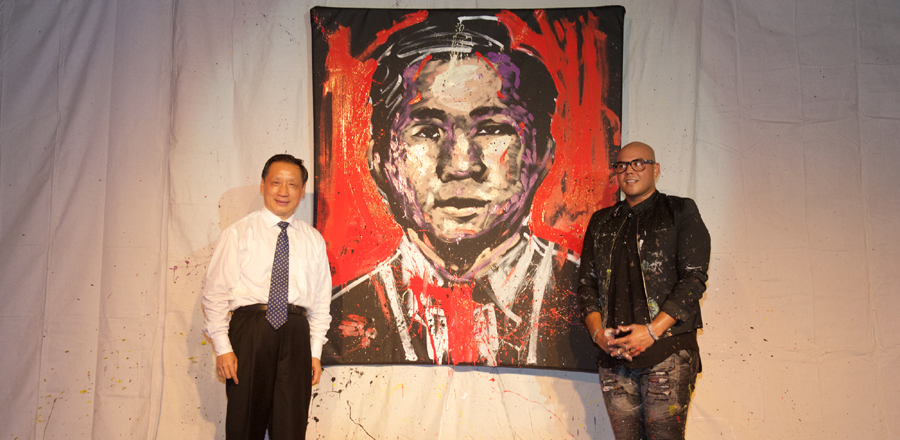White paper: Gender Equality and Women's Development in China
Updated: 2015-09-22 11:15
(Xinhua)
|
||||||||
VIII. International Exchanges and Cooperation in Gender Equality and Women's Development
China actively implements international conventions and documents concerning gender equality and women' s development, takes part in international bilateral and multilateral women's exchanges and cooperation, strengthens friendly exchanges with women organizations all over the world, and focuses on providing technical training and material assistance to women in developing countries, thus playing an important role in promoting gender equality and women' s development around the globe.
China is fully committed to implementing international conventions and fulfilling international obligations in the field of women. It has signed and approved relevant international conventions and documents, and met the obligations they impose. China embodies the spirit and principle of the Convention on the Elimination of All Forms of Discrimination Against Women (CEDAW) in the making of its laws, policies and plans, makes unremitting efforts to eliminate all forms of discrimination against women, safeguard women' s rights and interests according to law, and promotes gender equality. In 2003 and 2012, China submitted reports on the implementation of the Convention on the Elimination of All Forms of Discrimination Against Women in China. China was examined by the Committee on Elimination of Discrimination Against Women in 2006 and 2014. In 2013, China hosted the Working Group on the Elimination of Discrimination Against Women in Law and Practice of the UN Human Rights Council. China has energetically implemented the Beijing Declaration, the Platform for Action, and the United Nations Millennium Development Goals, and included them in its overall plans for economic and social development as well as outlines for the development of Chinese women. By the end of 2014, China had achieved, ahead of schedule, the goals of reducing extreme poverty and hunger, eliminating gender disparities in education, and lowering the mortality rate of women in pregnancy and childbirth.
China actively participates in the regional and global promotion of gender equality. It attaches great importance to cooperation with UN agencies, and supports positive steps taken by the UN to promote gender equality and women's development. China has galvanized the UN Human Rights Council to adopt the presidential statement, which was advocated by China to mark the 20th anniversary of the Fourth World Conference on Women and the adoption of the Beijing Declaration and the Platform for Action. China participates in the making of regulations and action plans for UN Women, and increases cooperation with it. China has hosted and held meetings on actions to follow up the Fourth World Conference on Women, and international meetings on women and disaster reduction, and women and sustainable development. In its efforts to promote regional gender equality, China has joined hands with the Economic and Social Commission for Asia and the Pacific (ESCAP) in launching a project to improve the capacity to address gender issues and achieve the United Nations Millennium Development Goals in the Asia-Pacific region. As the host of the Asia-Pacific Economic Cooperation (APEC) in 2014, China organized the Forum on Women and the Economy. Within the framework of the ASEAN plus China, Japan and South Korea cooperation mechanism ("10+3"), China hosted the East Asia Gender Equality Ministerial Meeting.
China conducts extensive bilateral exchanges and cooperation regarding women. It treats gender equality as a major issue in the mechanism of state exchanges. During Sino-US, Sino-French and Sino-Russian exchanges, women' s forums, symposiums and cultural weeks of different themes have been held to further enhance mutual friendship and trust. Over the past two decades, China has carried out international cooperative projects concerning women in the fields of women and health, women and the economy, women and education, women and decision making and management, women and the environment, women, marriage and the family, combating domestic violence, and poverty and disaster reduction. Over the past decade, the All-China Women's Federation (ACWF) alone has organized more than 100 international cooperative projects. Within the framework of South-South cooperation, China has focused on providing technical training and material assistance to women in developing countries in Africa, Asia and Latin America, established woman-to-woman exchanges and training centers, and sent Chinese experts to give guidance. In recent years, China has provided generous small-sum material assistance to women in Africa, Asia and Latin America, and helped them improve their working and living conditions.
Chinese women and women organizations take a more active part in international affairs. In 2015, China has 1,695 women diplomats, accounting for 30.7 percent of its total diplomatic strength. Of these, 12 are ambassadors, 19 are consuls general, and 132 are counselors, comprising 7.9 percent, 24.4 percent and 30.4 percent of the respective staff at corresponding levels. Chinese women organizations actively participate in reviewing important UN conventions concerning gender equality and women' s development. Chinese experts have served as representatives on UN' s Committee on Elimination of Discrimination Against Women, written and submitted NGO shadow reports, when review is in process on the implementation of international conventions and documents, including the CEDAW, the Beijing Declaration, and the Platform for Action, and taken part in various forms of exchanges and dialogue concerning gender equality and women' s development.
Conclusion
It is obvious to all that, in tandem with rapid economic and social development, great progress has been achieved in the promotion of gender equality and women's development in China over the past two decades.
At the same time, China is highly aware that, as a developing country with the world' s largest population, and restricted by its limited level of economic and social development, it will continue to be confronted with new situations and problems in its efforts to promote women's development. There is still a long way to go to achieve gender equality in China, and arduous tasks remain to be tackled.
In its efforts to advance the Four-Pronged Comprehensive Strategy, China will continue implementing the basic national policy of equality between men and women, constantly improve policies and measures in the fields of economy, law, administration and public opinion, safeguard women' s rights and interests in accordance with the law, and work to achieve greater success in the cause of gender equality and women's development. China is willing to work with other countries to encourage all social sectors to contribute to the promotion of gender equality and women' s development, to strengthen and expand international exchanges and cooperation, and to contribute further to promoting worldwide equality, development and peace.

 Obama look-alike lands a movie role
Obama look-alike lands a movie role
 The world in photos: Sept 14-20
The world in photos: Sept 14-20
 Zhejiang's Zhoushan in full swing for sand sculpture festival
Zhejiang's Zhoushan in full swing for sand sculpture festival
 Stars arrive at the 67th Primetime Emmy Awards
Stars arrive at the 67th Primetime Emmy Awards
 Top 15 Chinese CEOs to attend US roundtable during Xi's visit
Top 15 Chinese CEOs to attend US roundtable during Xi's visit
 Across America over the week (Sept 12-18)
Across America over the week (Sept 12-18)
 House showcasing Sino-American friendship open
House showcasing Sino-American friendship open
 Top 10 M&A deals between China and US in 2015
Top 10 M&A deals between China and US in 2015
Most Viewed
Editor's Picks

|

|

|

|

|

|
Today's Top News
Young people from US look forward to Xi's state visit: Survey
US to accept more refugees than planned
Li calls on State-owned firms to tap more global markets
Apple's iOS App Store suffers first major attack
Japan enacts new security laws to overturn postwar pacifism
Court catalogs schools' violent crimes
'Beauty of Beijing's alleys akin to a wise, old person'
China makes progress fighting domestic, international cyber crime
US Weekly

|

|







